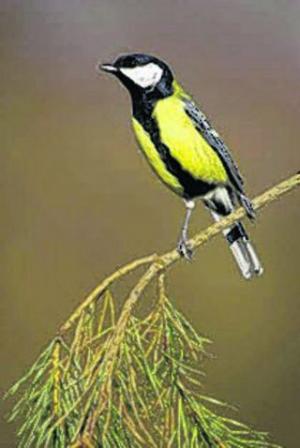 Help sought over infected wild birds
Help sought over infected wild birds HELP is being sought from members of the public after diseased birds were spotted near Oxford.
Great tits have been monitored by Oxford University scientists at Wytham Woods since 1947, but signs of avian pox were recorded among its inhabitants last year.
Now the university and the Zoological Society of London (ZSL) has teamed up to investigate, and they want the public to report sightings of sick garden birds.
The disease can leave great tits riddled with lesions, stopping them feeding and leaving them vulnerable to predators.
Researchers say the disease has been known in common species including woodpigeons, house sparrows and starlings in the UK since the 1960s.
But since 2006, it has been spreading through great tits in south east England, and less commonly in other garden favourites including blue tits and coal tits, the Zoological Society of London (ZSL) said.
Multiple birds are being affected at individual sites, ZSL’s wildlife vet Dr Becki Lawson said. And while the avian pox virus, which leads to warty, tumour-like growths on birds, particularly on the head around the eyes and beak, can be relatively mild in some species, it can provoke severe symptoms in tits.
Dr Lawson said: “The lesions can be really rather severe. Remarkably the birds can be bright and active, but if the lesions interfere with ability to feed or flight, it could make them very vulnerable to predators,” she said.
Dr Shelly Lachish, from Oxford University’s zoology department, said Wytham Woods had been a site of study since 1947, and was a unique data set.
She added: “We are appealing for the public to send us their reports, which is going to be extremely useful for getting a bigger nationwide picture and for finding out which species are being infected.”
l People who see birds which are displaying symptoms of avian pox should report their sightings to the RSPB Wildlife Enquiries Unit on 01767 693690.
No comments:
Post a Comment